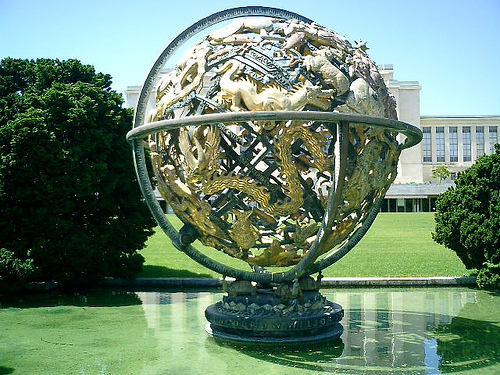
It was no surprise that that international discussions on the security and stability arrangements in Abkhazia and South Ossetia broke down on October 15.
The Geneva Conference was a flop because of Russia’s obstructionism. With the United Nations and OSCE as co-sponsors, Moscow was able to throw its weight around demanding that the delegations from Abkhazia and South Ossetia be given equal status to internationally recognized Member States.
Nicolas Sarkozy should have been the sole chair of the meeting on behalf of the EU presidency with only officially recognized Member States and international organizations allowed to participate in the formal plenary. Yes, renegade Abkhaz and South Ossetian representatives must have a voice in discussions about Georgia’s future. However, they could have been assigned caucus rooms for meetings with official delegations.
Russia never intended the meeting to succeed. Had the meeting run its course, Russia’s Foreign Minister Sergei Lavrov knew full-well that the chairman’s statement summarizing key findings and recommendations would also have affirmed the “independence, sovereignty, and territorial integrity” of Georgia. Russia aggressed and has tried to dismantle Georgia. Why would Lavrov now put Russia in a position to be repudiated by the international community?
When negotiations resume on November 18, international mediators should propose a format that works for everyone. A good format precedent was set by the August 1992 London Conference for the former Yugoslavia whereby self-declared but unrecognized entities were allowed to interact with world leaders but not in the formal plenary session.
For a more detailed strategy/structure for international mediation of this conflict, see the recent Atlantic Council report “Post-Conflict Georgia.”
UN Secretary-General Ban Ki-moon reacts to stalled talks between Russia and Georgia
David L. Phillips is a senior fellow and director of the Forum on Georgia and the Caucasus at the Atlantic Council of the United States. He is also co-director of the Study Group on U.S.-Russian and Georgian Relations at Columbia University’s Harriman Institute.
